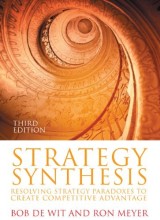Summary: Managing Change | 9780273711742 | Bernard Burnes
- This + 400k other summaries
- A unique study and practice tool
- Never study anything twice again
- Get the grades you hope for
- 100% sure, 100% understanding
Read the summary and the most important questions on Managing Change | 9780273711742 | Bernard Burnes
-
1 Introduction to Change management
This is a preview. There are 57 more flashcards available for chapter 1
Show more cards here -
In order to create the conditions for succesfull change, which 5 questions need to be answered ?
1. Why do you want to change?
2. Should we focus on individual group or system change?
3. Will there be resistance, and if so where from? How can we gain employee commitment? Are we ready for change?
4. who will manage the change process? Do they have the appropriate skills?
5. what are the frequency and magnitude of the changes required in order for us to survive? -
What does 'Unconscious Incompetence' mean in the Lewis Hange Model?
'Unconscious Incompetence' refers to the stage where learners are unaware of their lack of knowledge or skills in a particular area. -
What is the second stage in the Lewis Hange Model?
The second stage in the Lewis Hange Model is called 'Conscious Incompetence.' -
Why is the term organisational effectiveness difficult to interpret ?
Effectiveness is one of the most frequently used (and misused) words in discussing organisations. There is no universally accepted theory of organisational effectiveness. Neither is there a universal accepted definition and set of criteria that allows the effectiveness of an organisation to be measured. -
What does 'Conscious Incompetence' mean in the Lewis Hange Model?
'Conscious Incompetence' refers to the stage where learners become aware of their lack of knowledge or skills in a particular area. -
What are the 3 change management perspectives?
The individual perspective school
The Group dynamic school
The open system school. -
What is the third stage in the Lewis Hange Model?
The third stage in the Lewis Hange Model is called 'Conscious Competence.' -
What provides theory to the individual perspective school?
Behaviorisme.
Arising from this, one of the basis principles of the behaviorists is that human actions are conditioned by their expected consequences. Behavior that is rewarded tends to be repeated, and behavior that is ignored tends not to be. Therefore, in order to change behavior, it is necessary to change the conditions that cause it (Skinner)
Gestalt psychology
seeks to help individuals and group in an organisation to learn about themselves and, through this change, their understanding of themselves and their work context, which in turn, they believe, will lead to changes in behavior. -
What does 'Conscious Competence' mean in the Lewis Hange Model?
'Conscious Competence' refers to the stage where learners have acquired a certain level of knowledge or skills but still need to consciously apply them. -
What are the practical implications on behaviorisme in the individual school?
The recommendation to use both strong individual incentives (external stimuli) and discussion, involvement and debate ( internal reflection) in order to bring about the organisational change.
This combination of extrinsic and intrinsic motivators owes much to the work of the human relations movement ( MASLOW), stresses the need for both forms of stimuli in order to influence human behavior. This human movement also stresses the importancy of social groups in organisations as the Group dynamic school.
- Higher grades + faster learning
- Never study anything twice
- 100% sure, 100% understanding

































